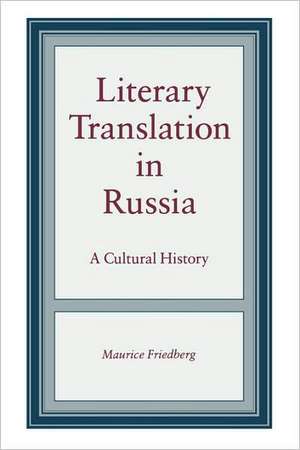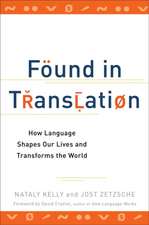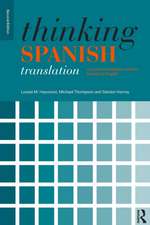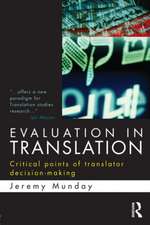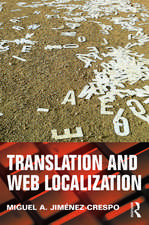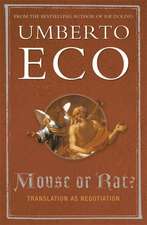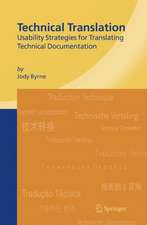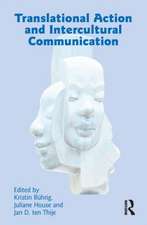Literary Translation in Russia – A Cultural History
Autor Maurice Friedbergen Limba Engleză Paperback – 14 apr 1997
Preț: 243.18 lei
Nou
Puncte Express: 365
Preț estimativ în valută:
46.53€ • 48.81$ • 38.74£
46.53€ • 48.81$ • 38.74£
Carte tipărită la comandă
Livrare economică 01-15 aprilie
Preluare comenzi: 021 569.72.76
Specificații
ISBN-13: 9780271028200
ISBN-10: 0271028203
Pagini: 234
Dimensiuni: 152 x 229 x 18 mm
Greutate: 0.35 kg
Editura: Penn State University
Locul publicării:United States
ISBN-10: 0271028203
Pagini: 234
Dimensiuni: 152 x 229 x 18 mm
Greutate: 0.35 kg
Editura: Penn State University
Locul publicării:United States
Textul de pe ultima copertă
In this rich historical study, Maurice Friedberg recounts the impact of translation on the Russian literary process. In tracing the explosion of literary translation in nineteenth-century Russia, when it became an established art and a recognized craft, Friedberg determines that it introduced new issues of cultural, aesthetic, and political values. Beginning with Pushkin in the early nineteenth century, Friedberg traces the history of translation throughout the lives of Dostoevsky, Tolstoy, and, more recently, Pasternak. His analysis includes two translators who became Russia's leading literary figures: Zhukovsky, whose renditions of German poetry became famous, and Vvedensky, who introduced Charles Dickens to Russia. In the twentieth century, Friedberg points to Pasternak's Faust to show how apolitical authors welcomed free translation, which offered them an alternative to the original writing from which they had been banned by Soviet authorities. Friedberg argues that literary translation had a profound effect on Russia by helping to erode the Soviet Union's isolation, which ultimately came to an end with the dissolution of the USSR in 1991.
